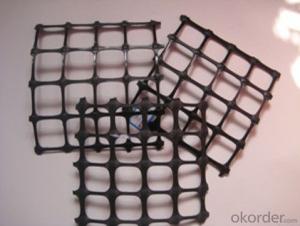Class 4 geotextile: A comprehensive guide.
The term “Class 4 Geotextile” may not be a household name when it comes to civil engineering and construction projects, but it is indeed the key to stability and long lasting of various structures. This article delves into the world of geotextiles with a focus on the robust Class 4 variety and why it is an important component in modern construction practices today.
The essence of geotextiles
Geotextiles are permeable fabrics which have been manufactured from synthetic polymers such as polypropylene, polyester or polyethylene. They are designed to work with soil, rock or other materials in order to enhance the performance of various civil engineering projects. The fabrics’ classification as ‘Class 4’ indicates how much strength they posses making them suitable for heavy-duty applications.
Unraveling the strength of class 4 geotextiles
Specifically engineered for resisting heavy loads and stresses, class 4 geotextiles have high tensile strength. For instance, retaining walls or steep slopes require these fabrics to hold up against significant forces (tensile strength). It’s not just some figures on a spec sheet; it’s knowing the difference between keeping it together and potential catastrophe.
Applications of class four geotextiles
Class 4 geotextiles versatility is reflected in their wide range of applications. From soil reinforcement in embankments to separating different materials, these cloths are multi-purpose tools for construction work. They also prevent loss of soil particles through filtering systems while allowing water passage through them and facilitate drainage systems which manage flow rate in an effective manner.
The role played by class 4 geo-textiles in erosion control
Erosion silently attacks any project under construction. Class four geo-textile plays an important role by providing a shield that stops soil washing away, hence preserving the structural integrity of the project and preventing soil erosion around.
Durability and longevity: My point of view
Having witnessed first-hand the power of class four geotextiles, I can confirm that they are long-lasting. These cloths do not offer a one-time solution, but are rather investments with returns in future. Invaluable peace of mind comes from knowing that your construction is backed by a material that is strong and reliable.
Installation and maintenance of Class 4 geotextiles
The installation process for class four geotextiles is relatively simple although extreme attention to detail is required. This ensures that there are no wrinkles or folds in the fabric which could compromise its effectiveness. Although maintenance is minimal, it’s important to inspect regularly so as to ensure the fabric remains in good condition for its continued use.
The future of Class 4 Geotextiles in Construction
In fact, looking ahead there will definitely be need for more Class 4 geo-textile since constructions become complicated and requiring durable materials to withstand tough conditions come up.This means that as we continue pushing the limits of construction, Class Four Geotextiles will play an integral part in meeting these ambitious objectives
Conclusion
In conclusion, modern construction is built on class four geotextiles. They are the strongest, long-lasting, and versatile. Geotextiles have extensive applications and contribute to the success of building projects significantly. As more advanced techniques in the construction industry emerge, the importance of class 4 geotextile will increase in stature as a necessary instrument for engineers.







